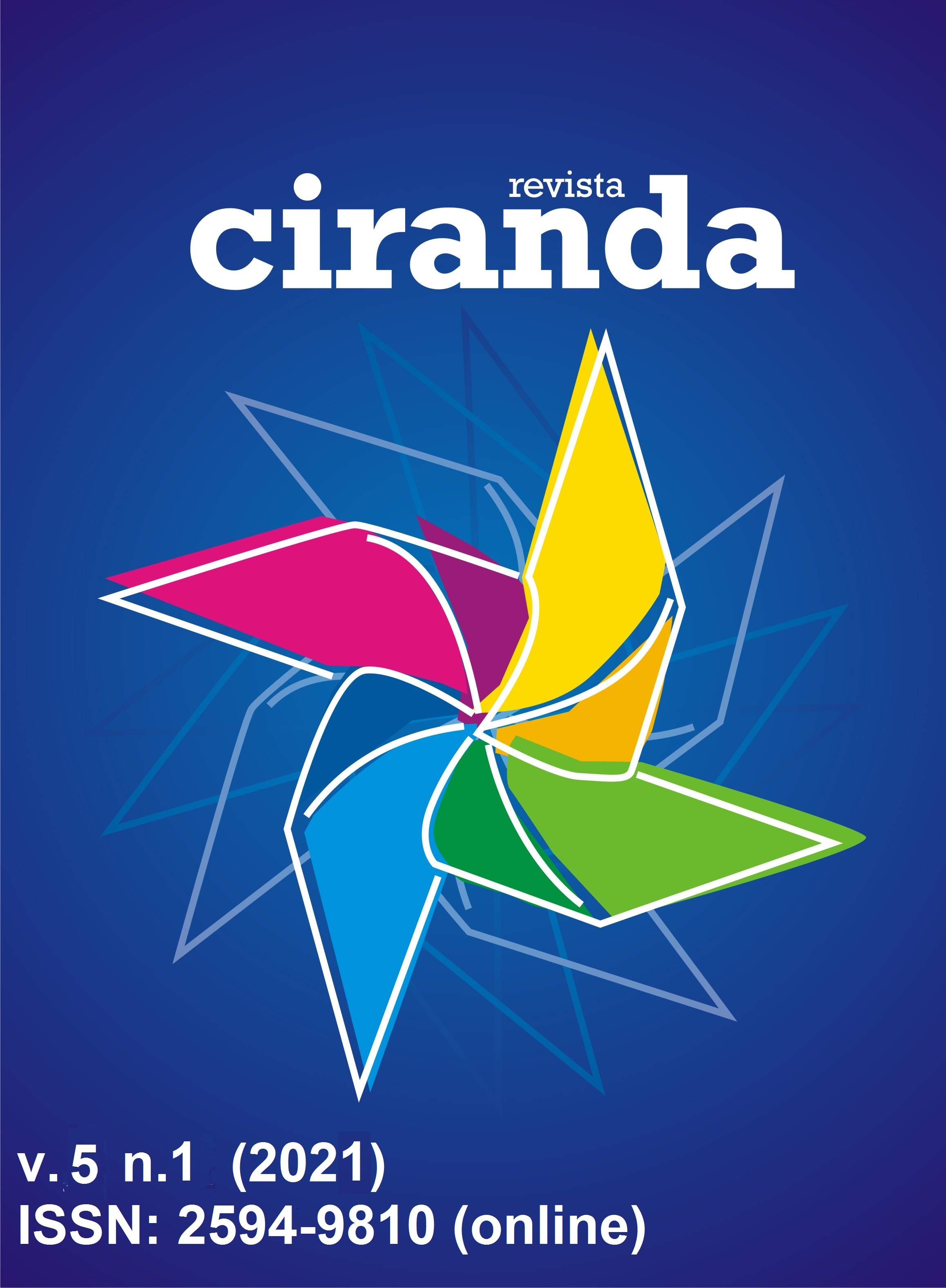JOGOS MATEMÁTICOS COMO MOTIVAÇÃO PARA APRENDIZAGEM MATEMÁTICA
DOI:
10.46551/259498102021009Keywords:
Games, Learning, Playful.Abstract
The theme of this article is Mathematics education: contributions of the
games in learning process. The research problematic pursuit understand
the way that is being used games for teaching math in elementary of
school X, in the first semester of 2012, have been adequate learning this discipline. So it's important rebound that the hypothesis before carrying out the research was:
the way that is being used games for teaching math in elementary of school X, in the first
semester of 2012, have been adequate learning this discipline. The methodology was based on
a qualitative view of research and operationalization of it involved a literature search based on
authors: Kishimoto, Smole, Vigotsky, Piaget, Oliveira, Araujo, Moyles, Fantin, Dante,
Santos, PCNs. It’s a is a field research which was achieved by conducting an structured
interview whereby a sample was Asked five teachers of school X and these subjects make up
a universe of twelve teachers. Based on the studies on the use of games in teaching
mathematics and search results with the questioned can be understood that the form which has
been used in games to make the teaching learning of school X contributes to the development
of an independent mathematical reasoning to the child and also allows the realization of
projections action planning solutions for new situations, creating own strategies to its
resolution, developing imagination and creativity.
Downloads
References
BAUER, M. W; GASKEL, G. Pesquisa qualitativa com texto, imagem e som: um manual
prático I tradução de Pedrinho A. Guareschi. Petrópolis, RJ: Vozes, 2002.
DOUGHERTY, D. The maker movement, 2012a. Disponível em:
<<https://www.mitpressjournals.org/doi/pdf/10.1162/INOV_a_00135>>. Acesso: 11 mar.
DOUGHERTY, D. Learning by making: American kids should be building rockets and
robots, not taking standardized tests, 2012b. Disponível em:
<<https://slate.com/technology/2012/06/maker-faire-and-science-education-american-kidsshould-be-building-rockets-and-robots-not-taking-standardized-tests.html>>. Acesso em: 30
set. 2020.
EDUKAMAKER. Somos uma startup de robótica educacional. Disponível em:
<<http://edukamaker.com.br/quem-somos/>>. Acesso em: 30 set. 2020.
EDUKAMAKER. A Edukamaker, a cultura maker solucionando problemas! Disponível
em: <<https://www.instagram.com/edukamaker/>>. Acesso em: 30 set. 2020.
FOUCAULT, M. Microfísica do poder. Org e trad. Roberto Machado. 25ª.ed. Rio de
Janeiro: Edições Graal, 2008.
FOUCAULT, M. A arqueologia do saber: Tradução Luiz Felipe Baeta Neves. 8ª.ed. Rio de
Janeiro: Forense Universitária, 2014.
Downloads
Published
Versions
- 2021-03-16 (2)
- 2021-03-08 (1)




.png)



